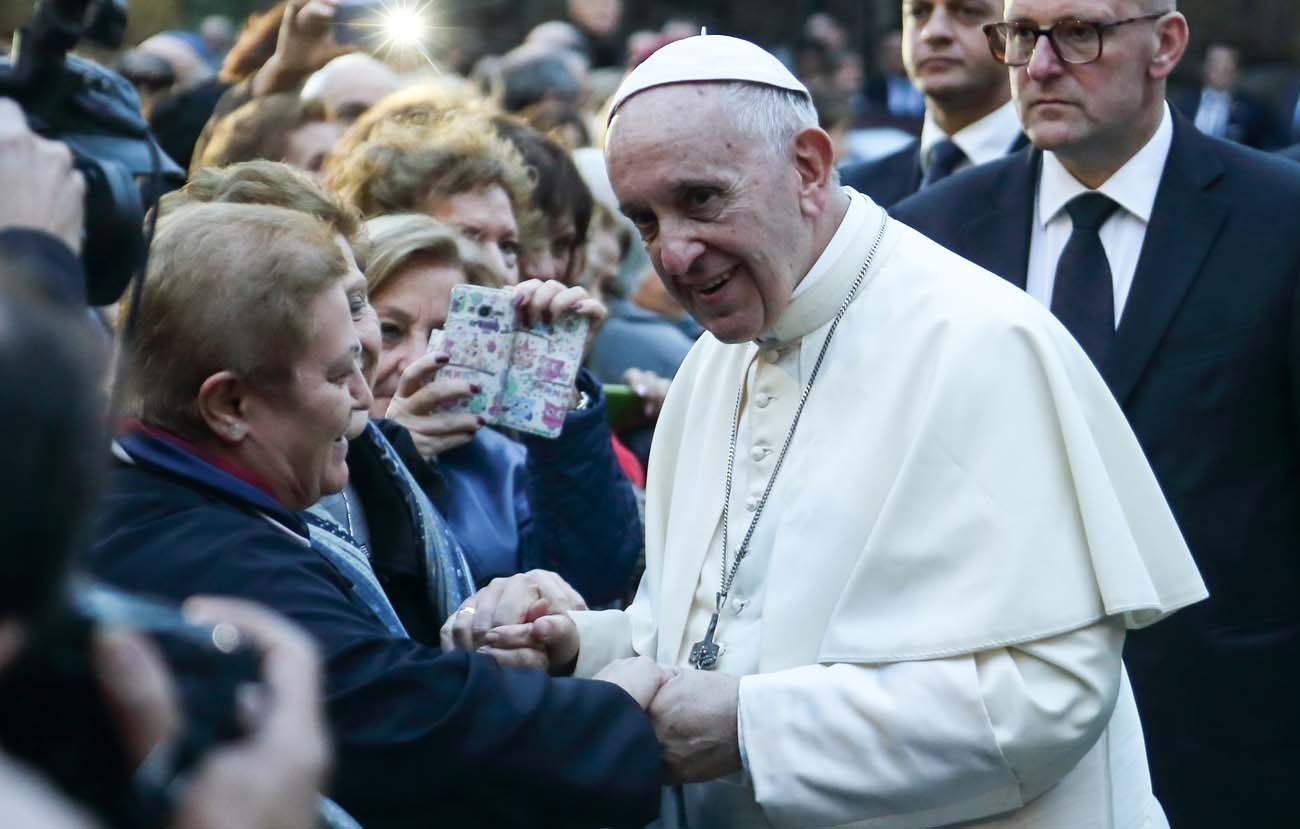VATICAN CITY (CNS) — When it comes to salvation, God does not seek any form of compensation and offers it freely to those in need of his love, Pope Francis said.
A Christian who complains of not receiving a reward for going to Mass every Sunday and fulfilling certain obligations “doesn’t understand the gratuity of salvation,” the pope said Nov. 7 in his homily at Mass in the Domus Sanctae Marthae.
“He thinks salvation is the fruit of ‘I pay and you save me. I pay with this, with this, with this.’ No, salvation is free and if you do not enter in this dynamic of gratuity, you don’t understand anything,” he said.
[hotblock]
The pope reflected on the day’s Gospel reading from St. Luke, in which Jesus recounts the parable of the banquet of a rich man who, after having his invitation spurned by his guests, invites “the poor and the crippled, the blind and the lame” to enjoy his feast.
Those who rejected the rich man’s invitation, the pope said, were “consumed by their own interests” and did not understand the generosity of the invitation.
“If the gratuitousness of God’s invitation isn’t understood, nothing is understood. God’s initiative is always free. But what must you pay to go to this banquet?” the pope asked. “The entry ticket is to be sick, to be poor, to be a sinner. These things allow you to enter, this is the entry ticket: to be needy in both body and soul. It’s for those in need of care, healing, in need of love,” he said.
God asks for nothing in return but “love and faithfulness,” the pope said. “Salvation isn’t bought; you simply enter the banquet.”
Pope Francis said those who decline to accept the invitation are consumed by other things that provide a certain sense of security, but they “have lost something much greater and more beautiful: they have lost the ability to feel loved.”
“When you lose the ability to feel loved, there is no hope, you have lost everything,” he said. “This calls to mind what is written on the gates of hell in Dante’s Inferno: ‘Abandon all hope,’ you have lost everything.”
PREVIOUS: Where there is sin, there will always be God’s mercy, pope says
NEXT: Reading Scripture in an age of short attention spans



Share this story